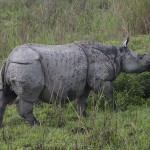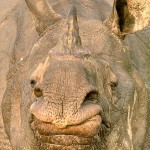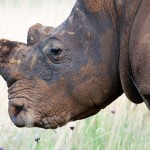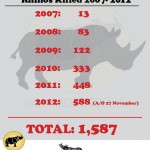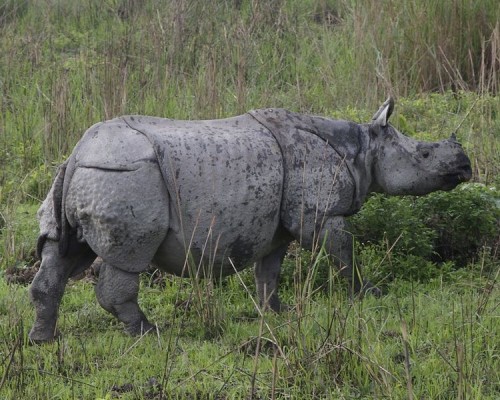
Three national parks in the Indian state of Assam have been struck by rhino horn trafficking gangs in less than ten days, resulting in the deaths of four rhinos and one gang member.
This latest killing spree has raised the 2013 rhino death toll to at least 32, compared to a total of 21 rhinos killed in Assam in 2012.
Manas National Park lost its fourth rhino of 2013 when a mother rhino was gunned down by an AK series rifle in the heavily encroached Bhuyanpara range in the eastern part of the park. The incident followed the fatal shooting of a rhino horn smuggling suspect identified as Sabi Bor, one of the people believed to be responsible for the rhino’s death. Villagers retaliated against Bor’s death by burning down one of the park’s anti-poaching camps. Field staff are monitoring the health of the orphaned rhino calf, although a “growing presence of armed militants” in Manas National Park, possibly linked to the National Democratic Front of Bodoland (NDFB), has raised safety concerns about NGOs working in the park.
Orang National Park suffered its first rhino casualty of this year on November 3. A rhino was killed when he wandered outside the park into Nisalamari village on the north bank of the Brahmaputra, according to the Times of India. The killers apparently took advantage of firecracker noise during Diwali festivities to mask the sound of gunfire.
Meanwhile, two rhinos were gunned down in two separate incidents inside Kaziranga National Park, which had just re-opened on November 1, following the annual monsoon season closure. Three suspects were arrested in connection with the October 30 killing, and police confiscated a .303 rifle and ammunition. The Telegraph reports that 26 rhinos have been killed in Kaziranga National Park since the beginning of the year.
Rhino horns obtained in India are generally destined for China. Listen to the Rhino Horn Trafficking in India podcast with Dr. Bibhab Talukdar, Chair of the IUCN Asian Rhino Specialist Group and founder of the NGO Aaranyak, to learn more.

